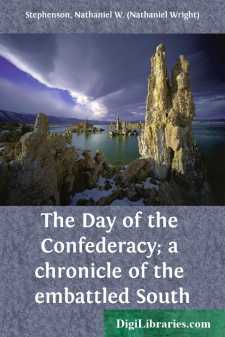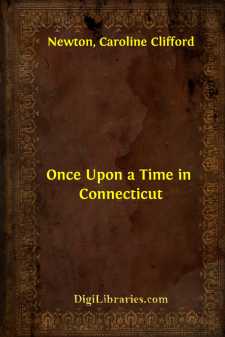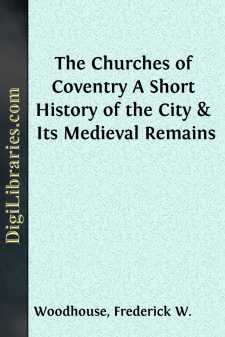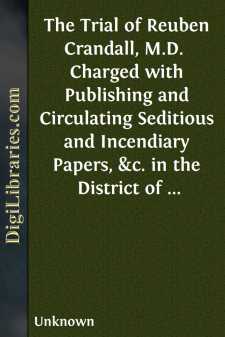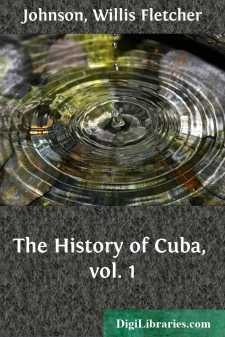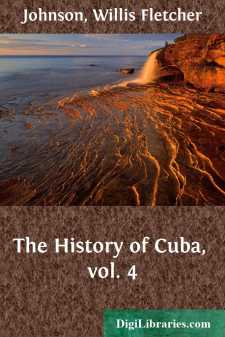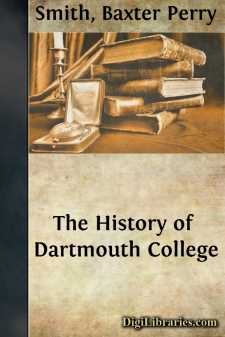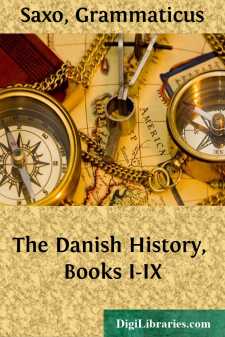History
- Africa 30
- Americas (North Central South West Indies) 50
- Ancient 68
- Asia 58
- Australia & New Zealand 8
- Canada 41
- Caribbean & West Indies 1
- Civilization 20
- Eastern Europe 12
- Europe 310
- Expeditions & Discoveries 60
- General 77
- Historical Geography 1
- Jewish 9
- Latin America 3
- Medieval 8
- Middle East 13
- Military 248
- Revolutionary 8
- Study & Teaching 5
- United States 353
- Western Europe 56
- World 13
History Books
Sort by:
Chapter I. The Secession Movement The secession movement had three distinct stages. The first, beginning with the news that Lincoln was elected, closed with the news, sent broadcast over the South from Charleston, that Federal troops had taken possession of Fort Sumter on the night of the 28th of December. During this period the likelihood of secession was the topic of discussion in the lower South....
more...
INTRODUCTION It is a pleasure to write a few words of introduction to this collection of stories dealing with the early history of Connecticut, a state that can justly point with pride to a past rich in features of life and government that have been influential in the making of the nation. Yet the history of the colony was not dramatic, for its people lived quiet lives, little disturbed by quarrels...
more...
CHURCHES OF COVENTRY MONASTERY AND CITY The opening words of Sir William Dugdale's account of Coventry assert that it is a city "remarkable for antiquity, charters, rights and privileges, and favours shown by monarchs." Though this handbook is primarily concerned with a feature of the city he does not here mention—its magnificent buildings—the history of these is bound up with that of...
more...
by:
Unknown
PRESENT:Cranch, chief justice, Thruston and Morsell, justices. F. S. Key, district attorney, and J. M. Carlisle, for the prosecution. R. S. Coxe and J. H. Bradley, for the defence. John H. King, Nicholas Callan, James Kennedy, Walter Clarke, George Crandall, William Waters, Thomas Hyde, Thomas Fenwick, Samuel Lowe, George Simmes, Wesley Stevenson, and Jacob Gideon, jr., were empannelled and sworn...
more...
PREFACE It is my purpose in these volumes to write a History of Cuba. The title may imply either the land and its natural conditions, or the people and the nation which inhabit it. It in fact implies both, and to both I shall address myself, though it will appropriately be with the latter rather than with the former that the narrative will be most concerned. For it is with Cuba as with other countries:...
more...
CHAPTER I Cuba for Cuba must be the grateful theme of the present volume. We have seen the identification of the Queen of the Antilles with the Spanish discovery and conquest of America. We have traced the development of widespread international interests in that island, especially implicating the vital attention of at least four great powers. We have reviewed the origin and development of a peculiar...
more...
INTRODUCTION. The most valuable part of a nation's history portrays its institutions of learning and religion. The alumni of a college which has moulded the intellectual and moral character of not a few of the illustrious living, or the more illustrious dead,—the oldest college in the valley of the Connecticut, and the only college in an ancient and honored State,—would neglect a most fitting...
more...
District Clerk's Office. (L. S.)Be it remembered, that on the sixth day of March, A. D. 1816, and in the fortieth year of the Independence of the United States of America, Rowe & Hooper, of the said District have deposited in this Office, the title of a book, the right whereof they claim as Proprietors, in the words following, to wit: "A Journal of a Young Man of Massachusetts, late a...
more...
I. Failure to recognize that the American, is at heart an idealist is to lack understanding of our national character. Two of our greatest interpreters proclaimed it, Emerson and William James. In a recent address at the Paris Sorbonne on "American Idealism," M. Firmin Roz observed that a people is rarely justly estimated by its contemporaries. The French, he says, have been celebrated chiefly...
more...
by:
Grammaticus Saxo
LIFE OF SAXO. Of Saxo little is known but what he himself indicates, though much doubtful supposition has gathered round his name. That he was born a Dane his whole language implies; it is full of a glow of aggressive patriotism. He also often praises the Zealanders at the expense of other Danes, and Zealand as the centre of Denmark; but that is the whole contemporary evidence for the statement that he...
more...


